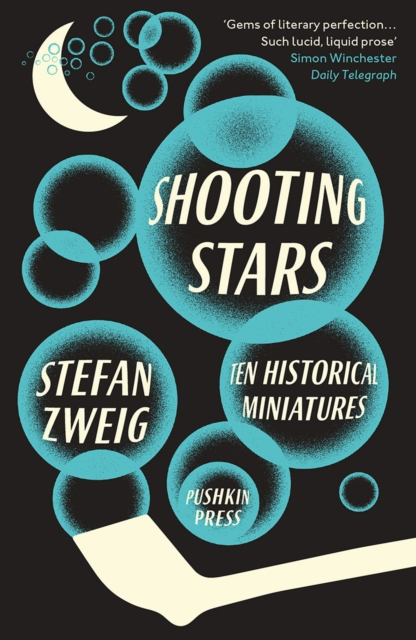
Shooting Stars : 10 Historical Miniatures Paperback / softback
by Stefan (Author) Zweig
Paperback / softback
Description
Ten turning points in history, vividly sketched by the great Stefan Zweig "Such dramatically concentrated, such fateful hours, in which a timeless decision hangs on a single date, a single hour, even just a single minute, rarely occur in everyday life, and only rarely in the course of history." One of the twentieth century's great humanists and a hugely popular fiction writer, Stefan Zweig's historical works bring the past to life in brilliant Technicolor.
This collection contains ten typically breathless and erudite dramatizations of some of the most tense and important episodes in human history. From General Grouchy's failure to intervene at Waterloo, to the miraculous resurrection of George Frideric Handel, this, Stefan Zweig's selection of historical turning points, newly translated by Anthea Bell, is idiosyncratic, fascinating and as always hugely readable. The perfect stocking-filler for the Europhile in your life' Philosophy Football 'Shooting Stars forms part of an ambitious project by Pushkin Press to bring Zweig's work to the attention of the English-reading public, an enterprise that has been entirely successful.
Zweigmania seems to break out with the publication of each book, with readers discovering his work by word-of-mouth and by accident.' Guardian'Zweig's impassioned pursuit of personal freedom seems more relevant than ever' NewsweekAbout the Author Stefan Zweig (1881-1942) was born in Vienna, into a wealthy Austrian-Jewish family.
He studied in Berlin and Vienna and was first known as a poet and translator, then as a biographer.
Zweig travelled widely, living in Salzburg between the wars, and was an international bestseller with a string of hugely popular novellas including Letter from an Unknown Woman, Amok and Fear. In 1934, with the rise of Nazism, he moved to London, where he wrote his only novel Beware of Pity.
He later moved on to Bath, taking British citizenship after the outbreak of the Second World War.
With the fall of France in 1940 Zweig left Britain for New York, before settling in Brazil, where in 1942 he and his wife were found dead in an apparent double suicide. Much of his work is available from Pushkin Press. About the AuthorStefan Zweig (1881-1942) was born in Vienna, into a wealthy Austrian-Jewish family.
He studied in Berlin and Vienna and was first known as a poet and translator, then as a biographer.
Zweig travelled widely, living in Salzburg between the wars, and was an international bestseller with a string of hugely popular novellas including Letter from an Unknown Woman, Amok and Fear. In 1934, with the rise of Nazism, he moved to London, where he wrote his only novel Beware of Pity.
He later moved on to Bath, taking British citizenship after the outbreak of the Second World War.
With the fall of France in 1940 Zweig left Britain for New York, before settling in Brazil, where in 1942 he and his wife were found dead in an apparent double suicide. Much of his work is available from Pushkin Press.
Information
-
Less than 10 available - usually despatched within 24 hours
- Format:Paperback / softback
- Pages:256 pages
- Publisher:Pushkin Press
- Publication Date:12/02/2015
- Category:
- ISBN:9781782270508
£12.99
£11.05
Information
-
Less than 10 available - usually despatched within 24 hours
- Format:Paperback / softback
- Pages:256 pages
- Publisher:Pushkin Press
- Publication Date:12/02/2015
- Category:
- ISBN:9781782270508






